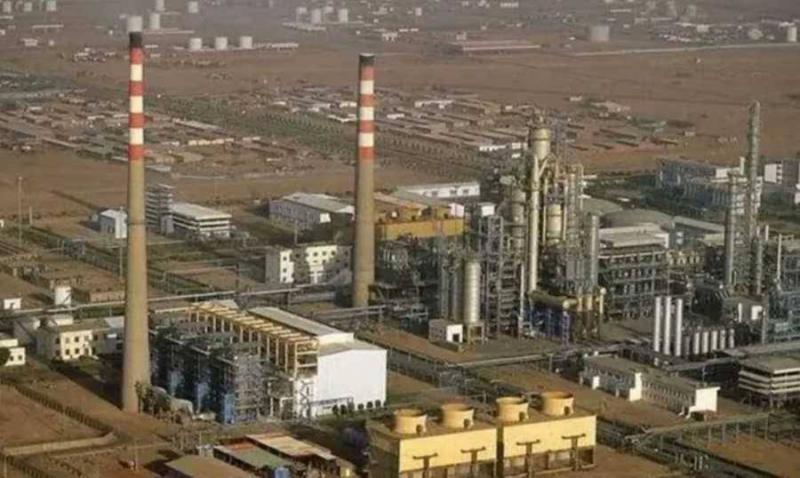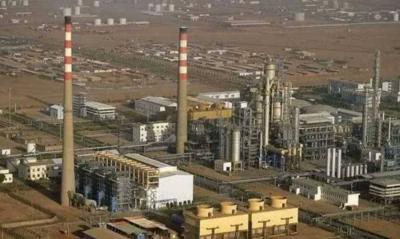Social media in Sudan has been flooded with video clips showing columns of flames rising after the Sudanese air force conducted military strikes on the refinery. A Sudanese official specializing in oil and energy has sounded the alarm regarding the potential danger Sudan may face due to the bombing and destruction of the Jeli Refinery in Khartoum, one of the most important and largest oil facilities in the country. He warned of a scenario similar to what occurred at the Beirut port in Lebanon about four years ago, which resulted in widespread devastation in the city, claiming hundreds of lives, injuring thousands, and displacing hundreds of thousands from their homes.
Dr. Hamid Suleiman, former Undersecretary of the Ministry of Energy and Oil in Sudan, confirmed to "Al Arabiya" that the recent bombing hit the "Rowyan" pumping station rather than the refinery itself. He explained that the focus has primarily been on the refinery, but it is important to note that this area contains multiple vital oil facilities such as power stations and a petrochemical plant, and it is linked to oil wells in West and South Kordofan through a pipeline, along with strategic fuel storage depots and distribution centers for major companies.
Regarding the potential damages if these vital oil facilities were to experience an explosion or bombing, Dr. Hamid told "Al Arabiya": "According to my information, the gas storage facilities at the refinery were emptied for safety reasons to reduce potential risks, but if they were to suffer an explosion or bombing, it could be larger than the Beirut port explosion, due to the presence of flammable materials and toxic gases." Dr. Hamid anticipated that the potential damages would be enormous, encompassing economic, environmental, and human losses, both for workers inside the vital oil facilities and for residents living in the surrounding areas.
He urged both warring parties not to use civilian facilities such as oil facilities, refineries, power and water stations, schools, hospitals, and other civilian properties as battlegrounds and to refrain from using them for military purposes.
**Where is the Jeli Refinery Located?**
The famous Khartoum refinery, known as the Jeli Refinery, is located in the Jeli area, which gives it its name, about 70 kilometers north of the capital. It was established in 1997 and commenced operations in 2000. It is jointly owned by the Sudanese government, represented by the Ministry of Energy, and the China National Petroleum Corporation. It is one of the largest refineries in Sudan and is connected by a 1610-kilometer pipeline for export to the Bashayer port on the Red Sea coast in eastern Sudan. It is also connected to oil wells in West and South Kordofan. However, the control of "Rapid Support Forces" over several fields in these states, including the Bilela field in West Kordofan, has significantly reduced the supply of crude oil to the refinery and diminished its refining capacity.
Before the war, the refining output covered 60% of Sudan's gasoline needs, 48% of diesel needs, and 50% of cooking gas needs. The refinery has also faced repeated bombing, airstrikes, and fires, with fierce battles occurring in its vicinity between the two warring factions.
In addition to the Jeli Refinery, Sudan has three other smaller refineries, all of which have seen a decrease in production due to the war: the Port Sudan Refinery in the Red Sea state, Abu Jabara Refinery in East Darfur, and White Nile Refinery in North Kordofan.




